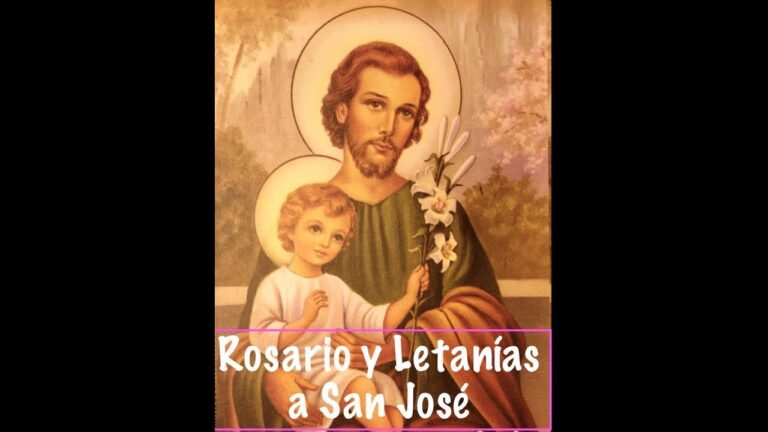Yom Kippur: Biblical Significance and Teachings
Yom Kippur, the Day of Atonement, holds profound significance in the Bible as a sacred time for reflection, repentance, and reconciliation. Rooted in ancient traditions, this solemn day is outlined in Leviticus 16, where the rituals of atonement are established, including the symbolic casting away of sins. As believers gather to fast and seek forgiveness, Yom Kippur serves as a powerful reminder of the importance of spiritual renewal and the enduring relationship between humanity and the divine. This article explores the biblical foundations of Yom Kippur and its lasting impact on faith and community.
In which part of the Bible is fasting on Yom Kippur mentioned?
Fasting on Yom Kippur is rooted in Jewish tradition and is emphasized in the Torah. Specifically, Leviticus 23:27 outlines the significance of the Day of Atonement, referring to it as a time for “self-denial.” This directive has shaped the observance of Yom Kippur, marking it as a solemn day dedicated to reflection, repentance, and spiritual renewal.
The act of fasting serves as a profound expression of humility and devotion, allowing individuals to focus on their relationship with God and the importance of atonement. As communities come together in prayer and introspection, the tradition of fasting reinforces the sacred nature of Yom Kippur, highlighting its role as a pivotal moment for personal and collective reconciliation.
Is it appropriate for Christians to observe Yom Kippur?
Celebrating Yom Kippur offers Christians a unique opportunity to engage deeply in the themes of repentance and atonement. This sacred day encourages believers to reflect not only on personal shortcomings but also on the collective need for healing within their communities. By participating in these observances, Christians can cultivate a spirit of humility and gratitude, recognizing the profound significance of Jesus’s sacrifice on the cross, which Isaiah 53:6 highlights by stating that He bore our sins.
Moreover, observing Yom Kippur can enrich a Christian’s faith journey by fostering a deeper understanding of biblical teachings and the Jewish roots of Christianity. It serves as a reminder of the importance of seeking forgiveness and striving for spiritual growth. As Christians embrace this day, they are not only honoring the Jewish faith but also enriching their own spiritual practices, reinforcing the message of love, redemption, and the transformative power of grace.
What is the connection between Yom Kippur and Jesus?
Yom Kippur, the Day of Atonement, holds profound significance as it foreshadows the ultimate sacrifice made by Jesus on the cross. The rituals described in Leviticus 16, which involve the atonement for sins through the scapegoat and sacrificial offerings, find their fulfillment in Jesus, who embodies the perfect and final atonement for humanity’s transgressions. By examining key New Testament passages alongside these ancient practices, one can see how Jesus the Messiah represents the culmination of Yom Kippur, bridging the Old and New Covenants with a message of redemption and grace.
Understanding the Day of Atonement: A Deep Dive into Its Roots
The Day of Atonement, known as Yom Kippur in Jewish tradition, serves as a profound moment for reflection and reconciliation. Rooted in ancient customs, it is observed on the tenth day of the Hebrew month of Tishrei, marking the culmination of the Ten Days of Repentance. This sacred day invites individuals to confront their actions over the past year, seeking forgiveness from both God and fellow humans. The rituals of fasting and prayer emphasize the importance of humility and self-examination, making it a cornerstone of spiritual renewal for many.
Historically, Yom Kippur has evolved from its biblical origins, where it was linked to the ritual of the scapegoat in the Temple. As the ultimate day of judgment, it encourages a collective return to ethical behavior and communal harmony. The solemnity of the day contrasts with the joyous anticipation of the New Year, offering a unique opportunity for growth and transformation. By embracing its deep historical roots, participants can find a meaningful path toward atonement, ensuring that the lessons of the past resonate in their lives moving forward.
Lessons from Yom Kippur: Spiritual Insights for Reflection
Yom Kippur, the Day of Atonement, serves as a profound reminder of the importance of introspection and personal growth. It encourages us to pause amidst our busy lives, allowing for an honest evaluation of our actions over the past year. This sacred time invites us to confront our shortcomings, seek forgiveness, and make amends, not just with others but also within ourselves. By embracing humility and recognizing the impact of our choices, we can cultivate a deeper connection to our values and aspirations.
The insights gleaned from Yom Kippur extend far beyond its observance. They prompt us to integrate reflection into our daily lives, fostering a mindset of continuous improvement. By regularly assessing our thoughts and behaviors, we can nurture compassion and empathy, both for ourselves and those around us. This practice of reflection not only enhances our relationships but also helps us to live more intentionally, guiding us toward a more meaningful and fulfilling existence. In embracing these lessons, we can transform our moments of solitude into opportunities for growth and renewal.
The Role of Repentance: Embracing Forgiveness on Yom Kippur
Yom Kippur, the Day of Atonement, invites individuals to reflect deeply on their actions and relationships, emphasizing the transformative power of repentance. This sacred time encourages us to confront our mistakes and seek forgiveness, not just from others but also from ourselves. By embracing repentance, we open the door to healing and renewal, allowing for genuine connections to flourish. As we engage in this process, we cultivate a spirit of compassion and understanding, fostering a community that thrives on empathy and reconciliation. Ultimately, Yom Kippur serves as a poignant reminder that through sincere repentance, we can restore our bonds with one another and with the divine, paving the way for a fresh start and a brighter future.
Connecting with Tradition: Yom Kippur’s Enduring Relevance
Yom Kippur, the Day of Atonement, serves as a powerful reminder of the values that shape our lives, inviting individuals to reflect deeply on their actions and relationships. As communities gather to observe this sacred day, the rituals of fasting, prayer, and introspection foster a profound sense of connection—not only to one’s heritage but also to a shared human experience of seeking forgiveness and renewal. In an increasingly fast-paced world, the traditions of Yom Kippur encourage a pause, prompting us to confront our shortcomings and strive for personal growth. This timeless observance not only enriches our spiritual lives but also reinforces the importance of empathy and understanding in our modern society.
Yom Kippur, deeply rooted in biblical tradition, serves as a powerful reminder of the importance of repentance, reflection, and renewal. Its profound significance transcends mere ritual, inviting individuals to engage in a spiritual journey that fosters personal growth and community healing. As we observe this sacred day, we not only honor ancient practices but also embrace the timeless values of forgiveness and atonement that continue to resonate in our lives today.






